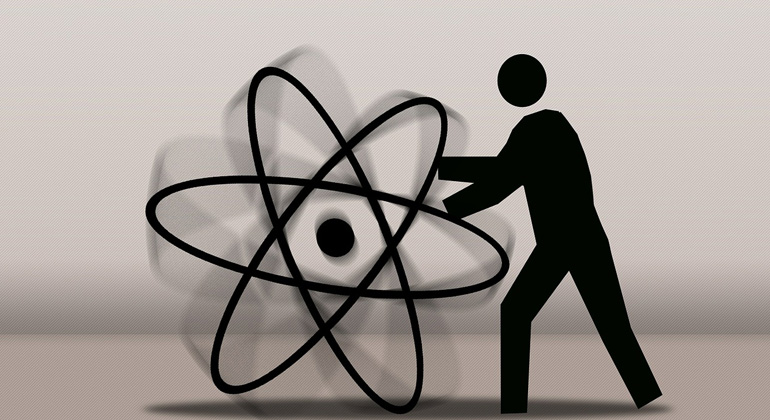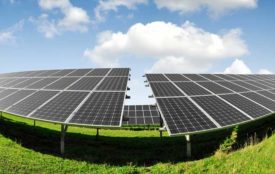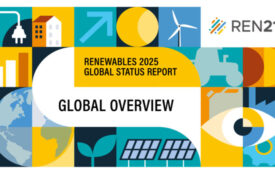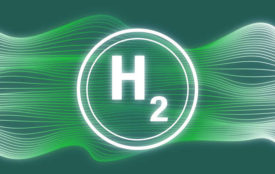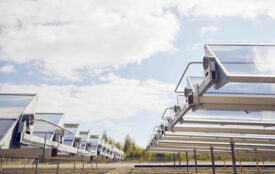New study reviews halfway point in Germany’s nuclear phaseout schedule
Supply Security Is Even More Stable despite Nuclear Phaseout – Fossil Reserve Power Is Replaceable.
The security of supply in Germany’s electricity system has improved despite the nuclear phaseout. This is the conclusion of a study by independent energy market analyst Energy Brainpool carried out on behalf of green energy provider Greenpeace Energy. There have been significantly fewer outages in the power grid, although the nuclear phaseout programme, which began in the first half of 2011 and was scheduled to take some eleven years for completion, has already shut down nine reactors with a total capacity of about 10 gigawatts, largely replacing them with weather-dependent renewable energy facilities. Moreover, grid operators since 2011 have needed to rely far less frequently on so-called “balancing power” to even out energy imbalances — which Energy Brainpool attributes to better national and international cooperation among transmission system operators and the strengthening of short-term power trading.
“These results show that the assertion repeated endlessly by the European nuclear power lobby — that nuclear power guarantees a particularly stable supply of electricity — has no sound basis”, says Sönke Tangermann, managing director at Greenpeace Energy. Several European countries are currently planning to build nuclear power plants. The UK wants to take a final decision in autumn on the construction of the Hinkley Point C plant. Hungary is planning to build a reactor at the Paks site with Russian involvement.
Energy Brainpool took many factors into account to assess Germany’s security of electricity supply. According to the SAIDI, an index compiled annually by the Federal Network Agency, the average disruption in supply in Germany added up to about 12 minutes in 2014 — far less than before the nuclear phaseout began. In 2010, the annual average of disruptions added up to almost 15 minutes, and in 2006 to more than 21 minutes. “Having a large share of conventional power production — in nuclear energy, for example — is on its own not a guarantee of a high level of supply security”, concludes Thorsten Lenck, who headed the study.
In an international comparison with countries that have a high share of nuclear power on their national grids, Germany actually scores significantly better with its relatively high share of renewable power. Average values for France (with 81 percent nuclear power) and Hungary (36 percent) were disruptions of 68 minutes for each country in 2013. In the UK (19 percent), the average value was 55 minutes.
Germany decided in 2011 to phase out nuclear energy. The capacity of NPPs shut down since then represented more than 10 percent of Germany’s peak load. At the same time, the share of renewable energies covering demand for electricity rose from 20 percent to more than 30 percent today.
The study also shows that climate-damaging coal power plants can be progressively replaced as a reserve for decommissioned NPPs. “As early as 2020, the efficient management of biomass facilities plus household and industrial facilities can reduce peak demand by up to 4.4 gigawatts”, says Thorsten Lenck. Fossil power plants would then need less and less frequently to provide so-called “guaranteed capacity”. According to Energy Brainpool’s analysis, another key role in meeting future demand for electricity could be assumed by storage technologies such as windgas (power-to-gas). Windgas uses surplus green energy to produce hydrogen that can be stored in the gas network, consumed, or reconverted to electricity in gas-fired power plants. This technology therefore lends itself cost-efficiently to absorbing electricity surpluses in the grid.
“It is imperative that policy-makers now ensure that flexible and decentralised storage technologies such as windgas in future both replace decommissioned nuclear power plants to help complete the nuclear phaseout and make fossil reserves replaceable in the medium term”, says Sönke Tangermann. This could even further improve the security of supply. Another conclusion of the study is that while fluctuations in weather-dependent renewable energies are generally well balanced, “some weather events can aggravate the supply situation at conventional power plants.” During the hot summers of 2006 and 2007, some plants had to curtail output or even shut down entirely to avoid heating river water used for cooling above permissible limits. In December 2015, low river levels at coal power plants led to breakdowns in power supply because these plants could not be supplied with coal by ship.
Short Study by Energy Brainpool on Supply Security (English, PDF)
